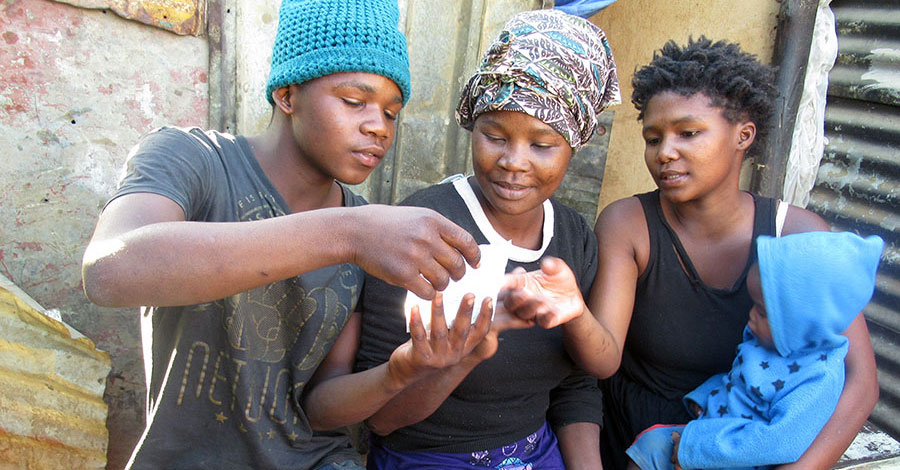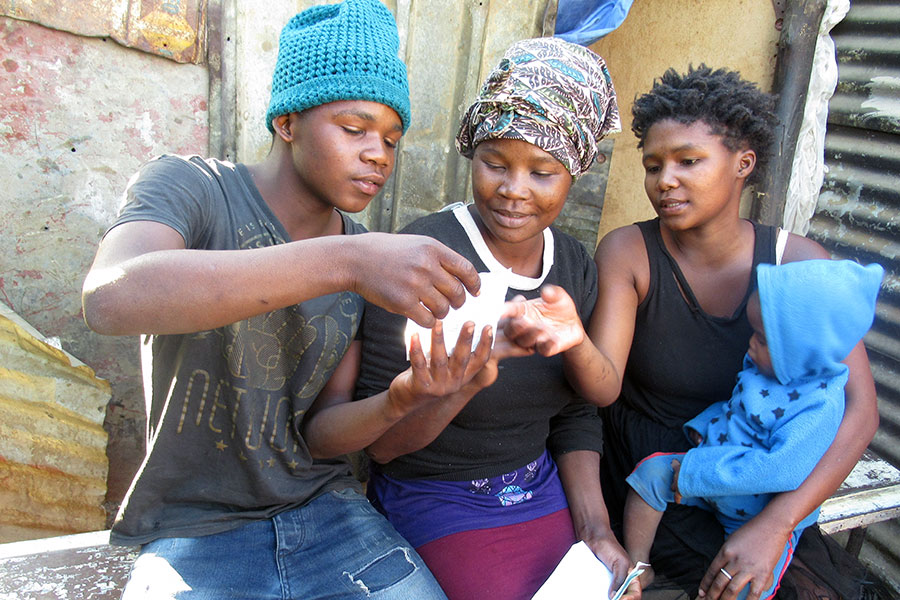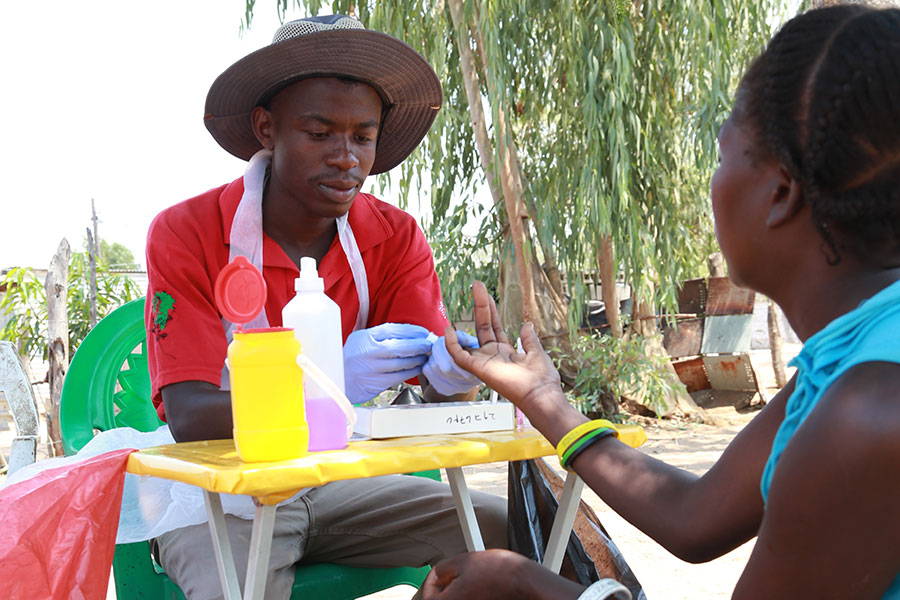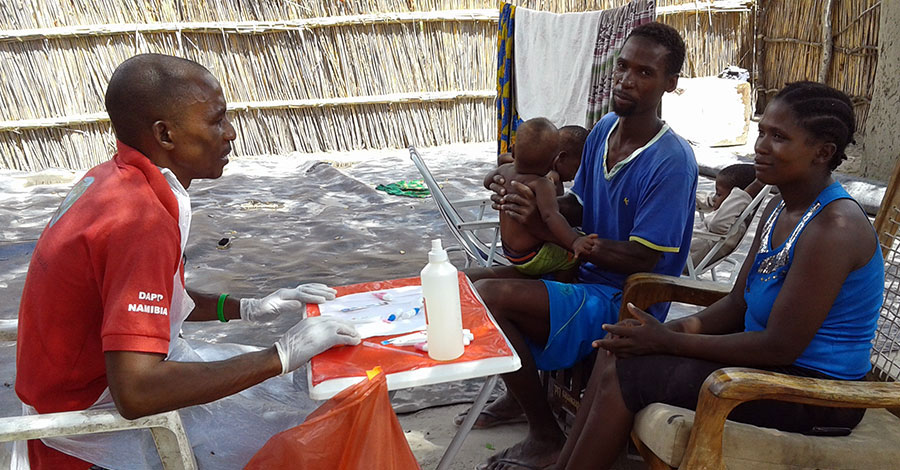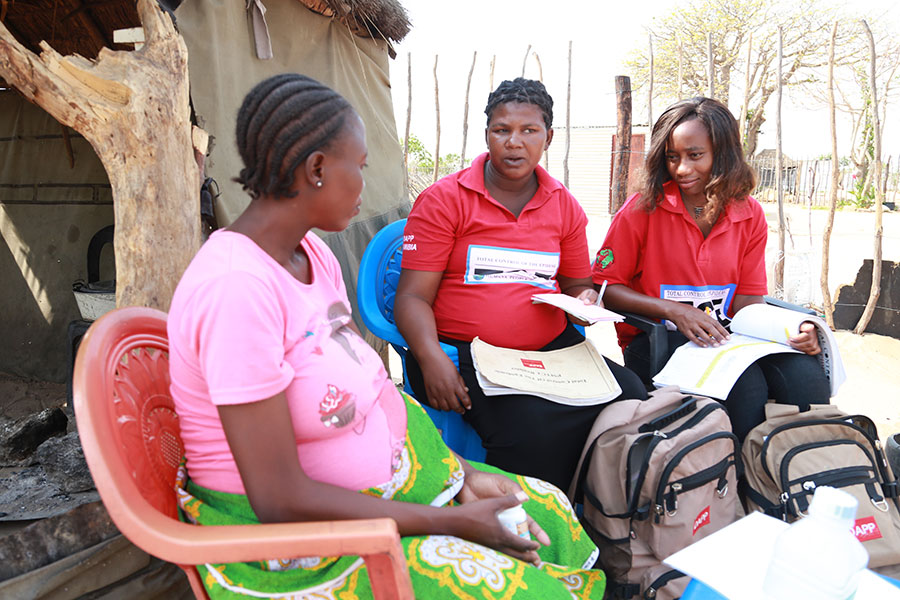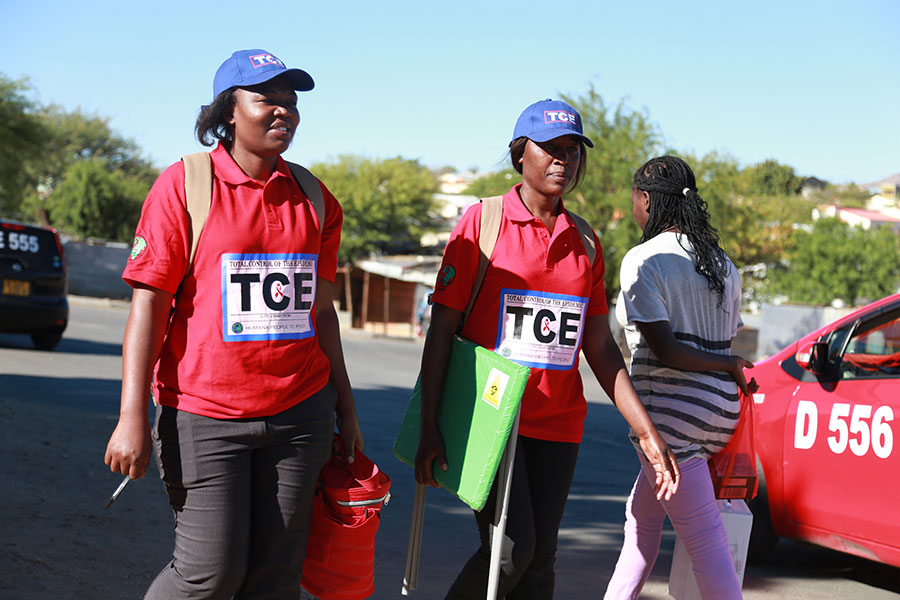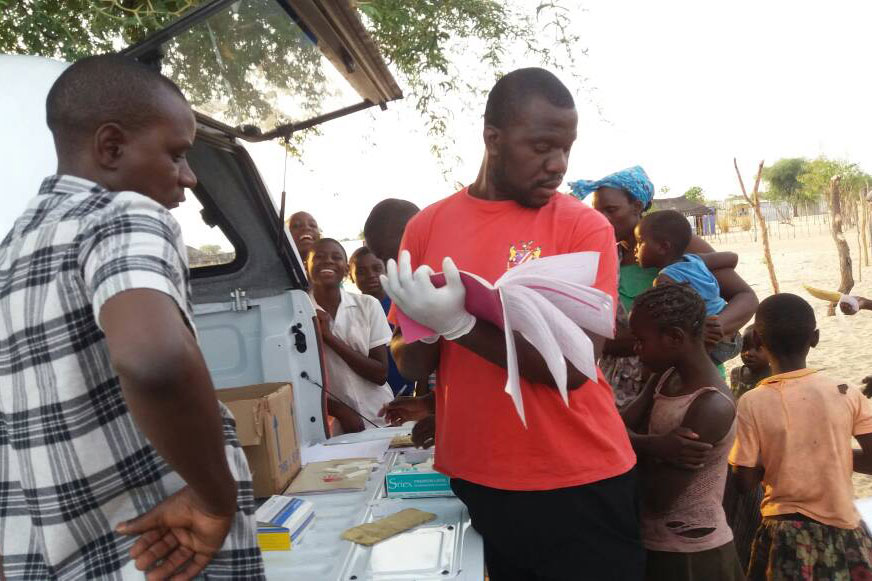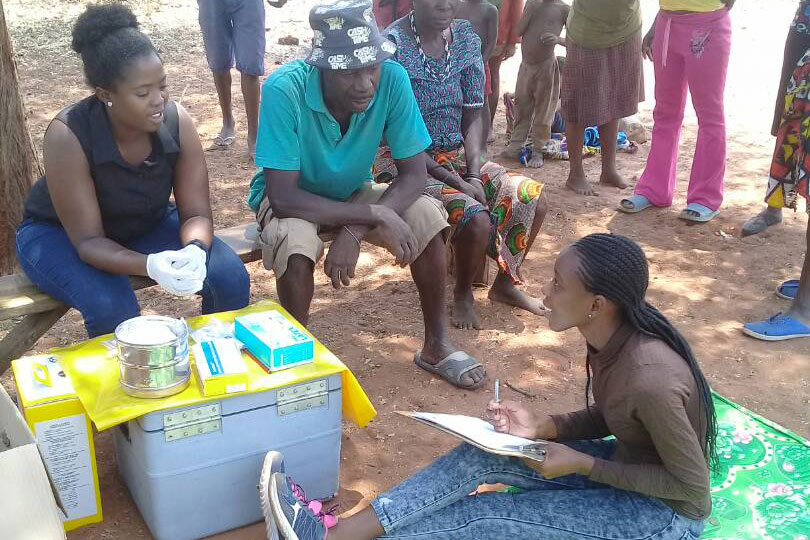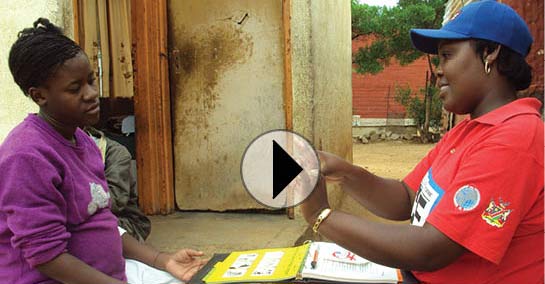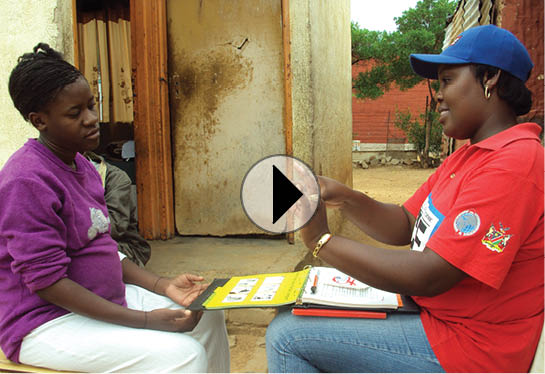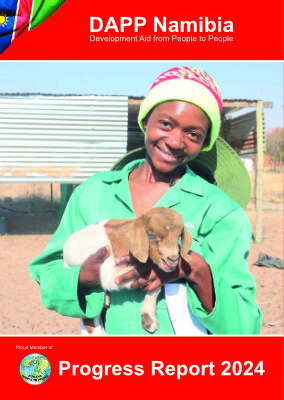We know we should ask every new partner to "get tested," but what for, exactly? With news that certain Sexual Transmitted Diseases (STDs)) are practically as common as the flu and that many people are not even getting tested anymore. What's the new "normal" when it comes to safe sex? Do not hold off on the conversation until you have done the deed, and then panic later when you have been exposed to something. Test first, sex later!
“I tested HIV positive during my last pregnancy when I started antenatal care. I was disappointed because I did not know my boyfriend's status, neither did I ever ask. One day when my boyfriend left for work I attempted to commit suicide. I tried hanging myself with a rope. Unfortunately, while I was busy preparing, I heard my friend came knocking at my door. She kept shouting my name, it is as if someone told her that I was up to something. The voice in me said I should open the door. When she turned her head to my ceiling there was my hanging rope. I cried as I disclosed to her that I tested HIV positive, I do not want to live positive I want to die. My friend told me, she has been living positively for two years, yet she is still living health. She showed me her the hospital passport card to prove that she is positive. It was after her advice that I decided to live a positive life. I later disclosed my status to my boyfriend and I found out that he was HIV positive and he did tell me about it.
This resulted in me separating from my boyfriend, I am glad my friend had advised me further to seek further support form DAPP TCE (Total Control Epidemic) support with the advice from TCE field officer I was able to give birth to an HIV-free baby and today I am living an HIV positive and healthy life ”- said a client, during the mother to child prevention, follow up.
This story was told by a mother to her TCE field officer followed up with the mother and body that they did the right things for 18 months after the body was born.
The TCE (Total Control of the Epidemic) programme priorities among others are centred on HIV prevention and treatment interventions, particularly working with Prevention of Mother-to-Child Transmission (PMTCT) clients. However, HIV/AIDS care after birth, for both the mother and baby, remains a challenge. It is said that even thou adherence of an infant lies with the mothers in some cases mothers do not understand the effects associated with defaulting and health consequence their children might face.
Adherence to antiretroviral treatments is necessary to prevent drug resistance and mother to child transmission of HIV among HIV positive women. However, there is a gap in clients’ knowledge, attitudes and perceptions of antiretroviral therapy (ART) and Prevention of Mother-To-Child Transmission (PMTCT) which influences their decision to adhere to ART.
“During my door-door follow up with my PMTCT clients, I found a breastfeeding mother who was defaulting on her ARV medication. And she was also not taking her baby for follow-ups either, she ended up infecting the baby. The baby lost weight, at 9 months old the baby was looking like a four months old. I sat her down to explain to her the importance of taking medication on time as well as following the doctor’s instructions. After our discussion, she agreed to be more committed. On my last visit, I found that both the baby and the mother in a good health condition. She thanks the TCE Field Officer for providing her with good information. She says it is because of lack of proper information that she was defaulting from her medication and program” stated TCE Field Officer reporter Maria Amiti.
Understanding the benefits of the PMTCT program, easy access to the program, as well as the presence of social support from families are the important motivators for mothers to commit to PMTCT. Therefore it is in the best interest of the child, and mothers to do HIV pre-test and PMTCT adherence education and counselling. Adherence to antenatal and postnatal clinic follow-ups will improve adherence rates for a possible HIV-free generation.
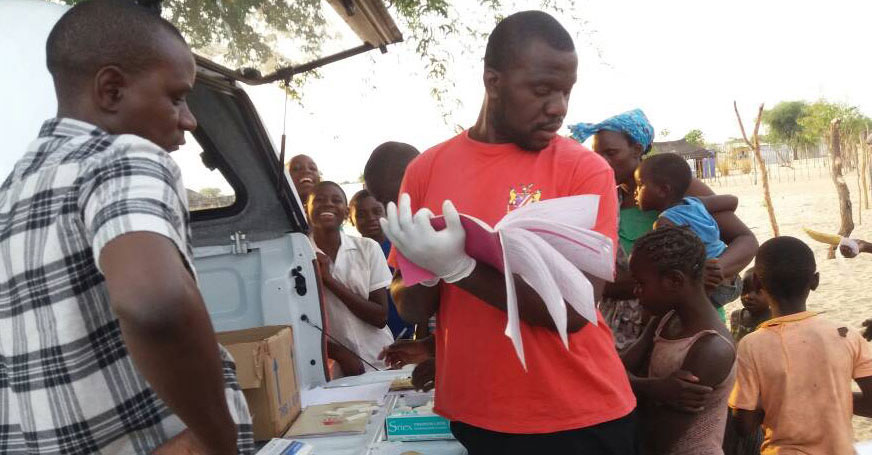
The Malaria program in Namibia has expanded to include community-based Testing, Treating and Tracing (TTT). Partners supporting the National Vector-borne Disease Control Programme (NVDCP) DAPP Namibia included, have been implementing the malaria awareness campaigns using community health workers to educate communities on malaria preventative measures and assisting in the distribution of Long Lasting Insecticidal Nets-LLINs (bed nets) and now this strategy has broadened to Testing, Treating and TracingTTT.
DAPP Namibia is part of a consortium consisting of five organizations; ADPP Angola, The MENTOR Initiative, CICA with JC Flowers Foundation operating in Angola and DAPP Namibia and AAP (Anglican Aids Program) operating at Angola-Namibia boarders implementing E8 Malaria project targeting cross border mobile populations to eliminate malaria transmission between the countries.
An important component of Malaria elimination is surveillance. Surveillance is observations of breakout cases. This is done through active case investigation and detection to predict, prepare and respond to the malaria outbreaks. Surveillance in the malaria program traces positive malaria cases and test and treat everyone within a 100m radius of the affected patient.
Community members have shown appreciation towards this new initiative stating that: “It is good that everyone was tested, and those who were tested positive were treated right away. It is also good that people do not have to go a long way to the hospital, this way I did not spend a cent ” said a community member when asked whether the project has brought change to the area.
DAPP Namibia's ultimate goal is to continue to be part of the implementing organisations assisting the 8 SADC countries (Angola, Botswana, Mozambique, Namibia, South Africa, Swaziland, Zambia and Zimbabwe) governments to eliminate malaria in the continent. The elimination goal for Namibia is to be reduced by 2022.
Therefore, DAPP Namibia continues to partake in partnerships, association and collaborations that ensure malaria cases are decreasing and eventually bringing the malaria under control to achieve elimination in Namibia.
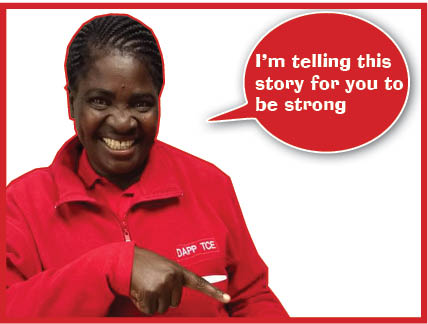
Josephine, a DAPP TCE field officer from Katima Mulilo, tells a powerful story about her experience of being HIV positive and of how she is working to help others, explaining “I’m telling this story for you to be strong. I want you to be strong”.
Every year in Namibia, over 6400 people are infected with HIV and there are more than 3000 HIV/AIDS-related deaths. More than one in ten people in Namibia are infected with HIV. Each of these people has a story to tell. One of these stories is Josephine’s story.
Josephine tested HIV positive when she was 41 years old. When she started to feel sick, she was afraid but she knew she had to get tested, explaining that whether she liked it or not, she knew the virus was there. Once diagnosed, she spoke of how “it was heavy at first” to tell her family and her friends, but day by day it became easier. She has come a long way since her diagnosis, first coming to accept her diagnosis and learning to manage her treatment regimen and to always take her medication, then becoming a “passionate” for DAPP (a volunteer who supports the work of DAPP field officers) and finally becoming a field officer for DAPP. She is now able to say with confidence, “it’s in me but it won’t kill me.... I’m walking with confidence, I’m proud; my positive must be my positive only”.
Josephine’s story is one of personal growth but she was not the only person in her family to be infected with the HIV virus and not every story ends well. Josephine spoke of how her daughter was also diagnosed as HIV positive. However her daughter did not tell anyone and she did not stay on her medication. Sadly she died when her child, Josephine’s granddaughter, was just 2 months old. Josephine believes she lost her daughter because her daughter did not tell anyone that she was HIV positive, and so when she stopped taking her medication, there was nobody to support her and to encourage her. Perhaps it is no surprise that today Josephine works most closely with young women, encouraging them to know their HIV status, and if they are HIV positive, to stay on treatment. For everyone she works with, she encourages them to accept their condition, explaining that “the more you talk about it, the more the fear will go away”.
As a field officer, Josephine’s office is her community and her work is to increase the number of people tested, to link people identified as positive to care, and to help trace people lost to follow up. She spoke of how she encourages HIV positive mothers to stay on their treatment regimen and to start their infants on treatment so that the virus is not passed from mother to child during birth or through breastfeeding. She tells the women “we will be with you until the day we go and celebrate” and she means it. She supports the women to maintain their treatment regimen during breastfeeding and makes sure they bring their children for HIV testing at birth, at 6 weeks, at 9 months and at 18 months. If a mother misses her appointment, Josephine goes into the community to find her, to see what may have happened and to encourage the mother to visit the clinic. Finally, when the infants reach 18 months of age, are tested and confirmed HIV negative, Josephine celebrates the success of this milestone with the mothers. This is a celebration of courage, time, effort and teamwork. In the x years that she has been a field officer, none of the women she has worked with have transferred the virus to their babies but if she does find HIV positive infants, she works with the mother to get the baby on treatment and supports mother and child to stay on treatment.
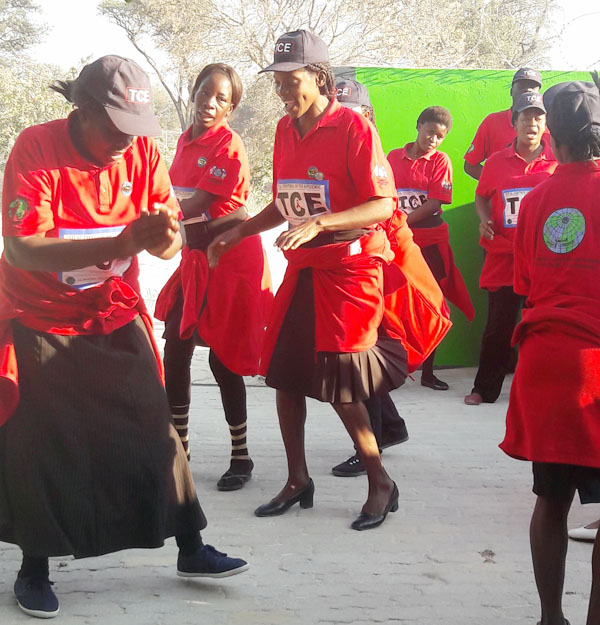
Josephine’s story is one of learning to accept her status and becoming stronger because of it; of seeking treatment for the virus and staying on her medication; it is a story of losing a loved one but learning to keep going. It is a story of love, of caring for her community. One of the people listening to Josephine’s story summarized this, saying that “it takes a lot of heart to prevent another young person from getting infected with HIV – it is that heart that will control the epidemic”. Her heart is telling her story so that you can be strong, so that you can get tested, and that if you are HIV positive, you stay on your medication, you seek support and you live a normal life.
|
If you would like to be tested for HIV, you can visit your local clinic. If you test positive for HIV your healthcare provider will tell you about the treatment you need. He or she may also be able to put you in contact with groups in your region who can support you.
If you are pregnant and you are HIV positive, your local healthcare provider will give you medication and more information about how you can prevent the transmission of the virus to your unborn child.
If you would like to learn more about DAPP or to find out if DAPP works in your area, contact……
|



